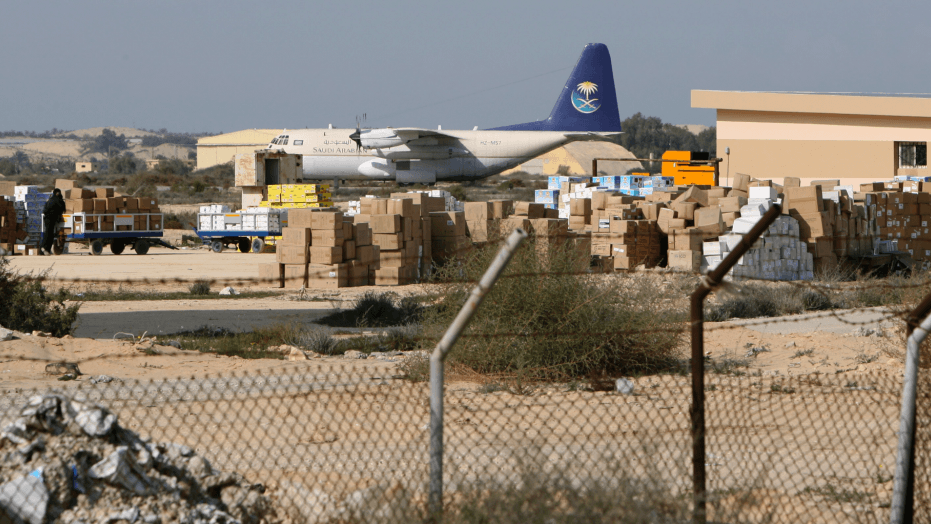Egypt begins military operation
February 9, 2018 | Expert Insights

On the 9th of February, Egypt launched its military campaign against terrorist and insurgent groups in the North Sinai province where it shares a border with Israel.
Abdel Fattah el-Sisi, former military commander and current President, is aiming at re-election next month.
Background
Modern Egypt gained independence from the British Empire in 1922. Following the revolution of 1952 incited by the Free Officers Movement, the constitutional monarchy was overthrown, and the Republic of Egypt was established. The first President - General Naguib lasted only 4 years before he was forced to resign by Gamal Abdel Nasser, one of the brains behind the Free Officers Movement.
Under Nasser, Egypt was involved in the North Yemen Civil War. Naseer’s time also saw a long history of conflict with Israel over the Gaza Strip. The 1967 war in particular was notable due to the declaration of an Emergency Law, which remained in effect almost continuously until 2012. Nasser died in 1970 and was succeeded by Anwar Sadat. Sadat’s rule saw the end of conflict with Israel in 1980, with the signing of the Camp David Accords. He was assassinated in 1981 by an Islamic extremist.
Hosni Mubarak was president of Egypt from 1981 to 2011. His rule has been critiqued for crippling Egypt’s civilian institutions, making space for increased military control. His rule saw an increase in terrorist attacks as Egypt was targeted by militant Islamist groups such as Al-Gamaá al-Islamiyya. Constitutional changes to further centralize authority were prevalent and the military had enormous power.
The Egyptian revolution beginning in January 2011 was a part of the wider Arab Spring, widespread protests for democracy. The uprising resulted in the overthrow of the government and Mubarak’s arrest. Since then, there have been rapid changes. Morsi, elected in 2012 and backed by the Muslim Brotherhood faced public discontent and was ousted by the military. After an interim government, the head of the Egyptian Armed Forces, Abdel Fattah el-Sisi was elected in the 2014 presidential elections and has remained in power since.
The Sinai Peninsula is a strip of land connecting Africa to the Asian continent. It also acts as Egypt’s border with Israel. Sinai has been the target of terrorist attacks since the early 2000s.
Analysis
On Friday, the 9th of February, Egypt launched its military operation against “terrorists and criminal elements” in the Sinai Peninsula and surrounding regions.
Military presence in Sinai has been characteristic of Sisi’s leadership. He has called it a “nesting ground for terrorism and terrorists”. Prior to his election, he launched military campaigns against jihadist groups in Sinai. There had been a rise in militant and anti-government groups since 2013, such as Wilayat Sinai, which has pledged its allegiance to ISIS. Other groups have allegiances to the Muslim Brotherhood and al-Qaeda. The region has been in a state of emergency since 2014 after a suicide bombing killed over 30 soldiers. Sisi has expressed suspicions of arms trade from Libya, and has also moved to tighten security on the Gaza border.
In November last year, a terrorist attack on a mosque in Sinai led to the death of over 200 people. Following this event, President Sisi ordered the clearing out of terrorist insurgents in the area within three months, stating that he would not shy away from using brute force. The Egyptian army conducted air strikes on terrorist vehicles involved in the attack and reportedly killed a few responsible.
Locals have noted an increase in warplanes and other military vehicles in the region, as well as patrols. Hospitals in the region have reportedly been asked to stay on high alert in case of emergency situations. According to a source from Reuters, the government intends for North Sinai to be “a province free of terrorism” before the month ends.
Military spokesperson Colnel Tamer al-Rifai said in an address, “The armed forces call upon the Egyptian people in all parts of the country to closely cooperate with law enforcement forces to confront terrorism, uproot it and immediately report any elements threatening the security and stability of the country.”
Egypt is set for a presidential election next months. Sisi will be vying to continue his term as president, however, the opposition has called for a boycott of the scheduled March polls. These polls have also been critiqued for being a sham with little space for real choice.
Sisi’s regime has also recently been criticized by the EU for its frequent use of the death penalty.
Assessment
Our assessment is that this campaign, if successful, will boost Sisi’s popularity for addressing a long-standing security issue. The people of Egypt have demonstrated their ability to express discontent against successive regimes. Military success in Sinai would ensure that the ruling party has a better chance of succeeding in the upcoming elections.








Comments